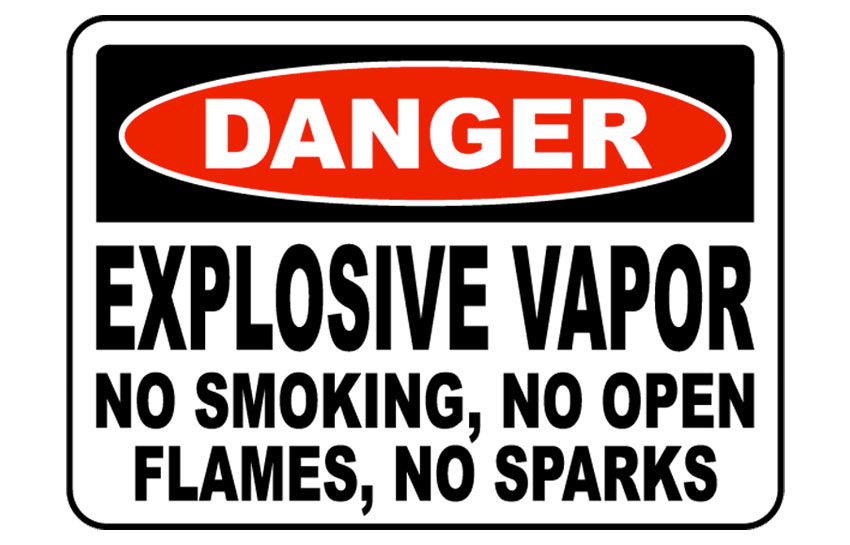
How Digitizing Improves Maintenance in Hazardous Areas
If you're with an organization that runs hazardous industrial operations like oil and gas, you know the importance of regular inspections and maintenance to keep the standard of safety level high throughout the whole operational life. To stay compliant, accurate management and documentation of functional safety and maintenance standards are necessary to ensure the equipment, machines, and work environment are safe and reliable. Thanks to digitization, it's now possible to carry out maintenance in hazardous areas efficiently, quickly, and safely.
Why It's Vital to Digitize Maintenance in Hazardous Zones
Maintenance in hazardous zones is a high-risk activity that involves both disassembling and reassembling complicated machinery. Employees also perform these tasks in exceptional environments, including working alongside running processes and in confined spaces. Doing all maintenance tasks manually increases the risk of human error and accidents.
The following are a few reasons to digitize your maintenance tasks for better outcomes.
Reduce the Risk of Accidents
Digitizing maintenance diminishes the likelihood of human error, as direct contact between the worker and machine reduces to a bare minimum. Workers can use digitization tools like smart cameras and AI-enabled bots to access plant systems and machinery in risky environments for remote monitoring and diagnosing possible risks.
Improved Efficiency
A digitized maintenance task leverages specialized devices and software to diagnose all issues in a hazardous operation. Connecting your systems to the diagnostic software can determine if there is any malfunction in your operations. It can also pinpoint the exact problem and highlight the possible location of the fault. Ultimately, digitization in precarious areas leads to increased efficiency and a reduction in your maintenance expenses.
Facilitating Critical Communication
With digitization, equipment data, inspection plans, inspection records, facility layouts, repair protocols, and many other crucial data are stored in special data banks. When an inspection or maintenance task is due, the database sends messages to your technical team alongside inspection plans and other crucial plant information that they can download to tablet computers or smartphones. These devices combine with smart cameras, intelligent glasses, and a range of other digital equipment to establish a mobile worker concept. This removes manual processes and paperwork, improving workplace efficiency.
Lower Downtimes
If a maintenance issue arises during a normal operation in a plant, you can leverage your smart devices to contact experts and supervisors with pictures, videos, and other relevant data, including the inspection plans. This way, you can more easily and quickly detect and resolve malfunctions, errors, and non-conformities, leading to lower downtimes.
Aegex Tablets Enable Digitization in Hazardous Areas
Organizations operating in areas prone to risks, such as explosions, require their workers to leave devices outside the perilous areas, as they can spark or ignite the combustible environments when powered on. However, without these devices, workers don't have access to real-time communication and must rely on pen and paper to capture crucial information.
Aegex provides intrinsically safe designed for hazardous areas that enable your personnel to be constantly connected. Intrinsically safe devices operate at a very low power level, eliminating the possibility of incidental arching under normal conditions.
Explosion-proof devices feature pre-existing equipment designs with sealed cases to keep out flammable gases. With Aegex's certified, cloud-connected tablets, your maintenance and repair crew can remain connected and work more efficiently inside risky industrial zones, capturing information and reacting in real time.
Earning Safety Credits From Your Insurance Company With Digitization
For organizations in parlous operations, insurance is essential, but it comes with a hefty price tag. Digitization offers opportunities to reduce your insurance costs through safety credits. The adoption of intelligent, sophisticated technology, including artificial intelligence for controlling and monitoring systems, optimizes your risk management approaches for reduced risk exposure.
In the insurance industry, any measure likely to reduce the frequency of losses or severity of losses is referred to as loss control. Typically, the lower your risk exposure level, the lower your premiums and insurance costs, and vice versa.
Digitization enables agile infrastructure that enhances capacities for a speedy response in the event of a breakdown. Digital tools also ensure you have better visibility on the entire system to continuously monitor operations for hazard conditions and arrest issues before they lead to massive losses that could potentially raise your insurance costs.
Aegex Digitization Tools at Plants and Refineries
Oil and gas organizations looking to gain competitive advantage can leverage Aegex digitization tools that help plants and refineries expand productivity, increase safety, and enhance monitoring and mitigation of carbon and methane emissions. Aegex's tools are intrinsically safe devices that connect people, assets, and data in industries involved with risky operations.
Contact us today to find out how Aegex Technologies can help you digitize your maintenance operations.
